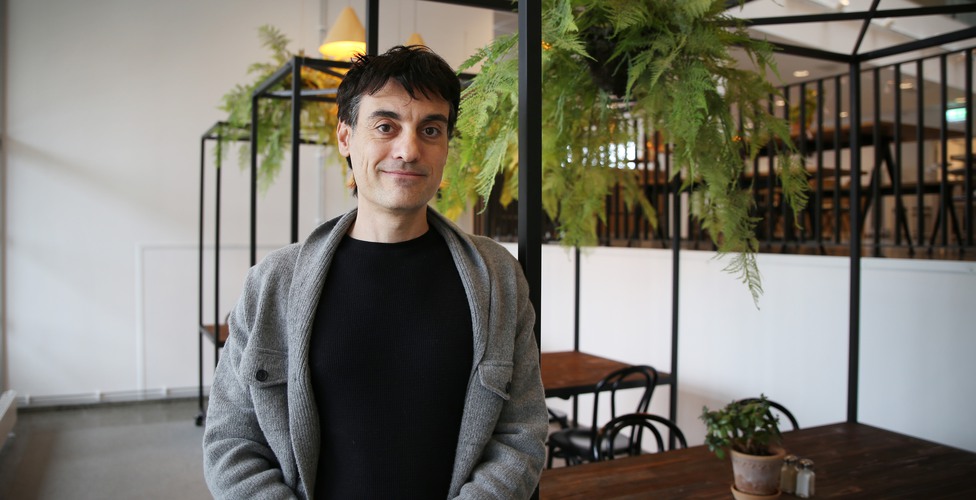Easter is the season of eggs. From colourful painted eggs to the golden-yellow accompaniments on the Easter table – but have you ever wondered why we indulge in eggs specifically at Easter? We spoke with Gianluca Tognon, Senior Lecturer in Public Health Science at the University of Skövde, to get to the bottom of it.
Eggs have long been a symbol of life and rebirth, which fits perfectly with Easter, but the modern egg tradition also has a more practical explanation.
– During the Christian Lent in the past, animal products were avoided, but of course the hens continued to lay eggs. When Lent ended, there was suddenly a whole pile of eggs to take care of, so it became natural to eat them at Easter, explains Gianluca Tognon.

Gianluca Tognon, Senior Lecturer in Public Health Science at the University of Skövde.
Eggs all over Europe
Egg traditions exist all over the world, but they vary depending on where you are.
– In Italy, where I come from, it's the chocolate eggs that take centre stage – l'uovo di Pasqua – large chocolate eggs with a toy inside. In Germany, egg painting is a big tradition, and during Easter week, trees and bushes are decorated with colourful Easter eggs, a custom called Ostereierbaum. In several Eastern European countries, such as Poland and Ukraine, painted eggs (pisanki) are an important part of Easter, says Gianluca.
A nutritious powerhouse
In addition to being festive, eggs are also nutritious.
– Eggs contain high-quality protein, vitamins such as A, D, and B12, as well as minerals like iron and selenium. They are also one of the best sources of choline, a substance necessary for the formation of acetylcholine, which is crucial for, among other things, memory and learning, Gianluca explains.
The protein found in eggs, ovalbumin, has a complete amino acid profile, which means it contains all the essential amino acids in the right proportions for the body. This makes eggs one of the most complete sources of protein available.
What about cholesterol?
Swedes tend to eat about 70 million eggs during the Easter week. The rest of the year, the average Swede eats 5.1 eggs per week. For many years, there was concern about the high cholesterol content of eggs, but newer research has nuanced this view.
– It was previously believed that dietary cholesterol directly affected blood cholesterol levels, but for most people it has quite a small effect. It is primarily the intake of saturated fats and trans fats that affects blood lipids and the risk of cardiovascular disease, says Gianluca.
For those who still want to be cautious, it is a good idea to consider the overall diet. One egg a day is no problem for most healthy individuals, especially if one eats a balanced diet rich in fruit, vegetables, and healthy fats.
Easter without eggs? Absolutely!
Eggs have a natural place on many Easter tables – but there are plenty of alternatives for those who are allergic, eat plant-based, or simply want to try something new. After all, Easter traditions are more about togetherness than what’s on the plate.
In baking, for example, eggs can be replaced with mashed banana, applesauce, or a mixture of chia seeds and water. There are also ready-made vegan egg substitutes available in shops. Nutritional alternatives to the content of eggs – choline, an important nutrient found in eggs, can also be obtained from soybeans, cauliflower, and nuts. Protein-rich alternatives include tofu, legumes, and nuts.
However you celebrate, there are countless ways to create a wonderful and colourful Easter tradition – with or without eggs!

